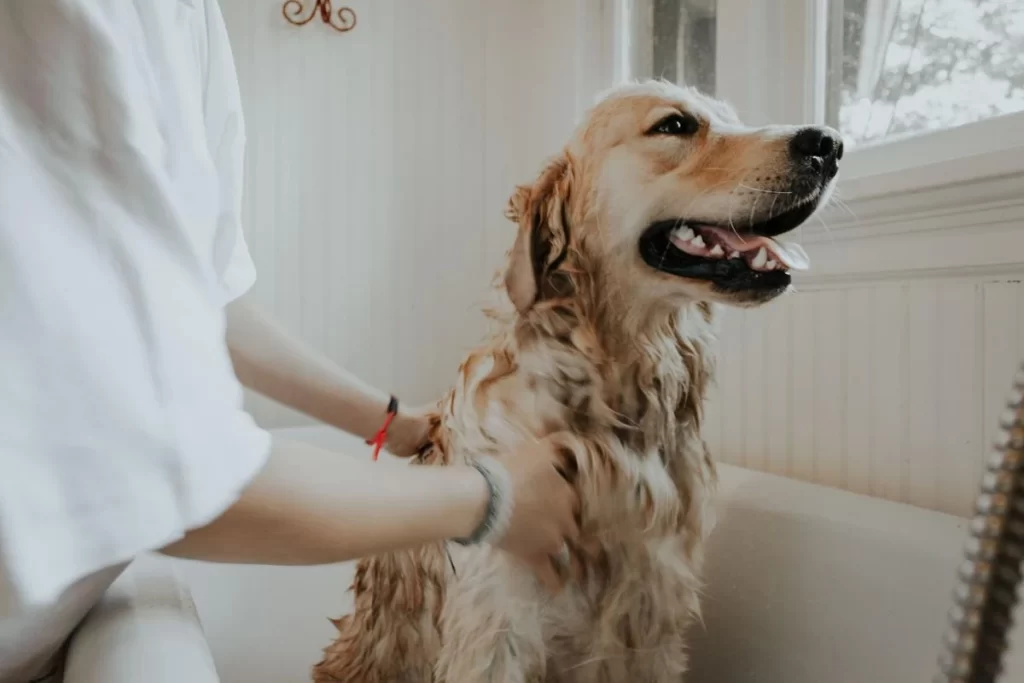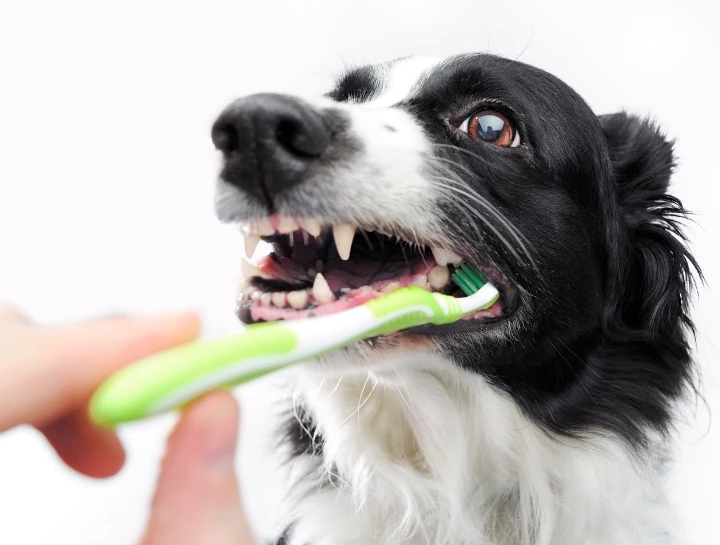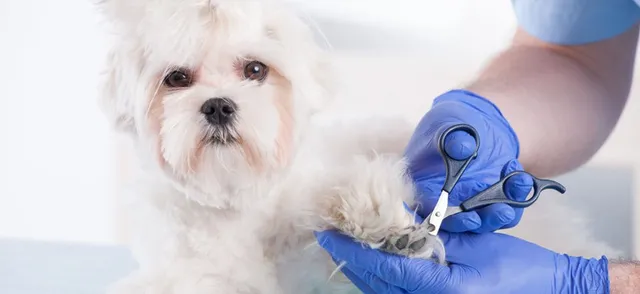Pet lovers in Biloxi! We all adore our furry friends, but sometimes we forget about their dental health. Did you know that dental care is a crucial part of grooming for your pets? Just like us, our four-legged companions can suffer from dental issues that can lead to discomfort and even serious health problems. In this article, Splish Splash Mobile Dog Grooming will explore the importance of pet dental care as an integral part of their grooming routine. We’ll share some handy tips and tricks to keep those pearly whites sparkling and your pets happy and healthy. So, let’s dive into the world of pet dental care together!
Importance of Dental Health:
Dental health is not just about pearly whites and fresh breath; it’s a fundamental aspect of overall well-being, much like the care provided by reliable pet grooming services. Just like we brush and floss to maintain our oral health, our pets need attention to their teeth and gums too. Proper dental care for your furry companion is crucial because it can prevent a host of problems. Neglecting their oral hygiene can lead to issues like gum disease, tooth decay, and even more severe health concerns like heart and kidney problems. So, when we talk about the importance of dental health, we’re talking about a happier, healthier life for our pets. It’s not just about a sparkling smile; it’s about their comfort and longevity.
Regular Checkups:
Regular checkups for your pet are like routine doctor visits for us humans – they play a pivotal role in ensuring your furry friend’s well-being. These visits to your veterinarian are essential because they allow for early detection of any potential health issues, including dental problems and nail trimming 101. During these checkups, your vet can assess your pet’s oral health, looking for signs of dental disease, tartar buildup, or other issues that might not be apparent at home. By catching problems early, you can prevent them from becoming more serious and costly to treat. So, think of regular checkups as a proactive way to keep your pet healthy and happy, making sure they stay by your side for years to come.

Regular Brushing:
Regular brushing is an essential practice for maintaining good oral hygiene, not just for humans but also for our beloved pets. Just like we brush our teeth to prevent cavities and gum disease, our furry companions also benefit from this routine. Brushing your pet’s teeth can help prevent plaque and tartar buildup, which can lead to painful dental issues down the road. It’s best to start early, getting your pet accustomed to the process as a puppy or kitten if possible, but it’s never too late to begin. Using a pet-specific toothbrush and toothpaste, gently brush their teeth a few times a week. This simple habit can go a long way in ensuring your pet’s dental health and overall well-being. Plus, it’s an excellent way to strengthen the bond between you and your furry friend as you care for their pearly whites. So, don’t forget to add regular brushing to your pet care routine – their smiles (and their health) will thank you for it!
Professional Dental Cleanings:
- Importance of Professional Cleanings: Just like us, our pets need professional dental cleanings. They’re essential for maintaining their oral health.
- Expertise Matters: Veterinarians and trained pet groomers have the knowledge and tools to perform thorough dental cleanings. They can reach areas that regular brushing can’t.
- Frequency: Professional cleanings are typically recommended once a year for most pets. However, your vet may suggest more frequent cleanings for pets with specific dental issues.
- Anesthesia: In many cases, pets require anesthesia during professional cleanings to ensure they remain still and comfortable during the procedure. Your vet will monitor your pet’s anesthesia carefully.
- Scaling and Polishing: The cleaning involves scaling to remove plaque and tartar buildup and polishing to smooth the tooth’s surface, reducing the risk of further buildup.
- Full Dental Examination: During a professional cleaning, the vet will also conduct a thorough dental examination. This can help detect any underlying dental issues or signs of disease.
- Prevention and Early Detection: Professional cleanings not only address existing problems but also help prevent future dental issues and catch any emerging concerns early on.
- Tailored Treatment: Your pet’s cleaning will be tailored to their specific needs. For example, older pets or those with dental diseases may require more intensive cleaning.
- Dental X-rays: In some cases, your vet may recommend dental X-rays to evaluate the condition of the teeth and roots, especially if they suspect hidden issues.
- Post-Cleaning Care: After a professional cleaning, your vet or groomer may provide instructions for post-care, including any necessary medications or follow-up appointments.
- Cost Considerations: While professional cleanings are an investment in your pet’s health, they can vary in cost depending on the pet’s size and the extent of cleaning required.
- Home Care Continues: Remember that professional cleanings complement regular at-home dental care. Brushing your pet’s teeth and providing dental treats can help maintain their oral health between appointments.
Dental Diet:
Choosing the right dental diet for your pet, just like deciding between nail filing vs. nail clipping, can make a significant difference in their oral health. Dental diets are specially formulated to promote clean teeth and healthy gums while providing essential nutrition. These diets often come in the form of kibble or dental treats that have a unique texture or ingredients designed to reduce plaque and tartar buildup. When your pet chews on these foods, it can help mechanically clean their teeth. Additionally, some dental diets contain additives like enzymes that can further break down plaque. It’s essential to consult with your veterinarian to select the best dental diet for your pet’s specific needs, as not all products are suitable for every pet. Combining a dental diet with regular brushing and professional cleanings can go a long way in ensuring your furry friend’s dental health is in top-notch condition. So, when you’re shopping for pet food, consider opting for a dental diet to support your pet’s overall well-being and maintain that bright smile.

Signs of Dental Problems:
Recognizing the signs of dental problems in your pet is crucial for their well-being. Keep an eye out for indicators like persistent bad breath, which can signal dental disease. Excessive drooling, difficulty chewing, or pawing at the mouth might also be signs of discomfort. If you notice bleeding gums, loose or missing teeth, or a change in your pet’s eating habits (such as reluctance to eat or favoring one side of the mouth), these can all be red flags. Additionally, some pets become irritable due to dental pain, so changes in behavior like increased aggression or a preference for soft foods can indicate an issue. Regularly inspect your pet’s teeth and gums, and if you spot any of these signs, don’t hesitate to consult your veterinarian. Early detection and treatment of dental problems can prevent pain and more severe issues down the road, ensuring your pet’s continued happiness and comfort.
Regular Check-ups:
Regular check-ups for your pet are like preventive healthcare appointments. They’re essential to ensure your furry friend stays healthy and happy. During these visits, your veterinarian not only examines your pet’s overall health but also pays special attention to their dental health. Dental issues can often go unnoticed until they become serious, so having a professional check your pet’s teeth and gums regularly is vital. These check-ups allow your vet to spot dental problems early, such as plaque buildup, gum disease, or tooth decay, and take steps to address them before they become painful and costly to treat. Plus, it’s an excellent opportunity to ask any questions you might have about your pet’s dental care routine at home. So, don’t skip those regular check-ups – they’re a key part of keeping your pet’s smile bright and their health in top shape!
Avoid Human Toothpaste:
- Toxic Ingredients: Human toothpaste often contains ingredients like fluoride, which can be toxic to pets when ingested. Pets can’t rinse and spit like we do, so they end up swallowing it.
- Foaming Agents: Human toothpaste foams up, and this can be uncomfortable for pets, leading to stress or even fear of dental care.
- Flavors and Sweeteners: Human toothpaste comes in flavors that might appeal to pets, like mint or fruit. However, these artificial flavors and sweeteners aren’t safe for your furry friend.
- Pet-Friendly Toothpaste: There are specially formulated pet toothpaste options available in flavors like poultry or beef, which are both safe and more appealing to pets.
- Abrasive Properties: Human toothpaste is designed for human enamel, which is different from your pet’s. Pet toothpaste is gentler on their teeth while still effectively cleaning.
- Pet Toothbrushes: Using a pet-specific toothbrush is also important. They are designed to reach your pet’s teeth and gums comfortably.
- Getting Used to the Routine: It’s easier to introduce your pet to dental care using products designed for them. Starting early and making it a positive experience is key to successful dental care.
So, remember, when it comes to your pet’s dental care, always opt for pet-friendly toothpaste and brushes. It’s a safer and more effective way to maintain their oral health without any risks associated with human toothpaste. Your pet’s smile will thank you!
Dental Toys:
Dental toys, like rubber chew toys or dental sticks, are not just for play; they’re designed to help keep your pet’s teeth clean and healthy. When your pet chews on these toys, it can help remove plaque and tartar buildup, similar to how in-house pet sitting can provide a safe and comfortable environment for them. Plus, it’s a fun and engaging way for them to stay entertained while giving their jaws and teeth a workout. Look for toys that are specifically designed for dental care, with textures that can help clean their teeth as they chew. These toys are a win-win – they provide mental stimulation and promote better oral hygiene. Just be sure to choose the right size and type of toy for your pet, and always supervise their playtime to ensure safety. Your pet will love the playtime, and you’ll love the benefits it brings to their dental health!

FAQ’s:
Are groomers allowed to clean dogs teeth?
In most places, groomers are not allowed to clean dogs’ teeth unless they are also licensed veterinary professionals.
What does grooming include pets?
Grooming for pets typically includes services such as bathing, brushing, hair trimming, nail trimming, and sometimes ear cleaning.
What is a hygiene groom for dogs?
A hygiene groom for dogs typically involves cleaning their ears, trimming sanitary areas, and addressing any hygiene-related issues, but it may not include a full haircut or bath.
What is a dog grooming salon?
A dog grooming salon is a specialized facility where trained professionals offer services to groom and maintain the appearance and hygiene of dogs, including bathing, hair cutting, nail trimming, and more.
How do groomers brush dog teeth?
Groomers typically use dog-specific toothbrushes and toothpaste to manually brush a dog’s teeth, using gentle circular motions to clean their teeth and gums.
CONCLUSION:
In conclusion, pet dental care is an essential aspect of grooming services here in Biloxi, just like anywhere else. Just like we take care of our own teeth, our furry friends need the same attention to maintain their oral health. Groomers in Biloxi, who are often experienced and trained in this area, use special toothbrushes and toothpaste designed for dogs to ensure that your pet’s teeth and gums are well taken care of. So, when you bring your beloved companion to a grooming salon in Biloxi, rest assured that their overall health and well-being, including their dental hygiene, are in good hands!


